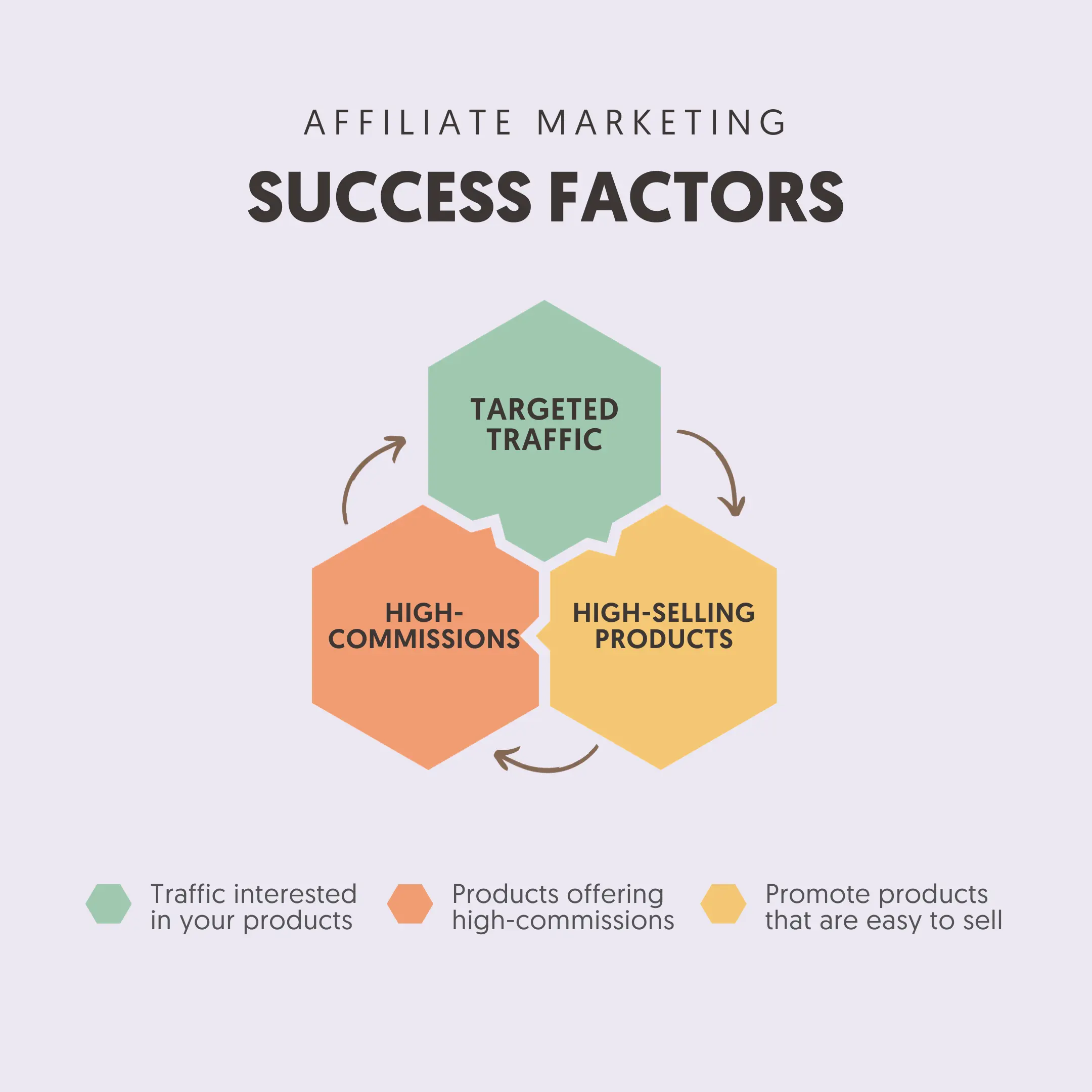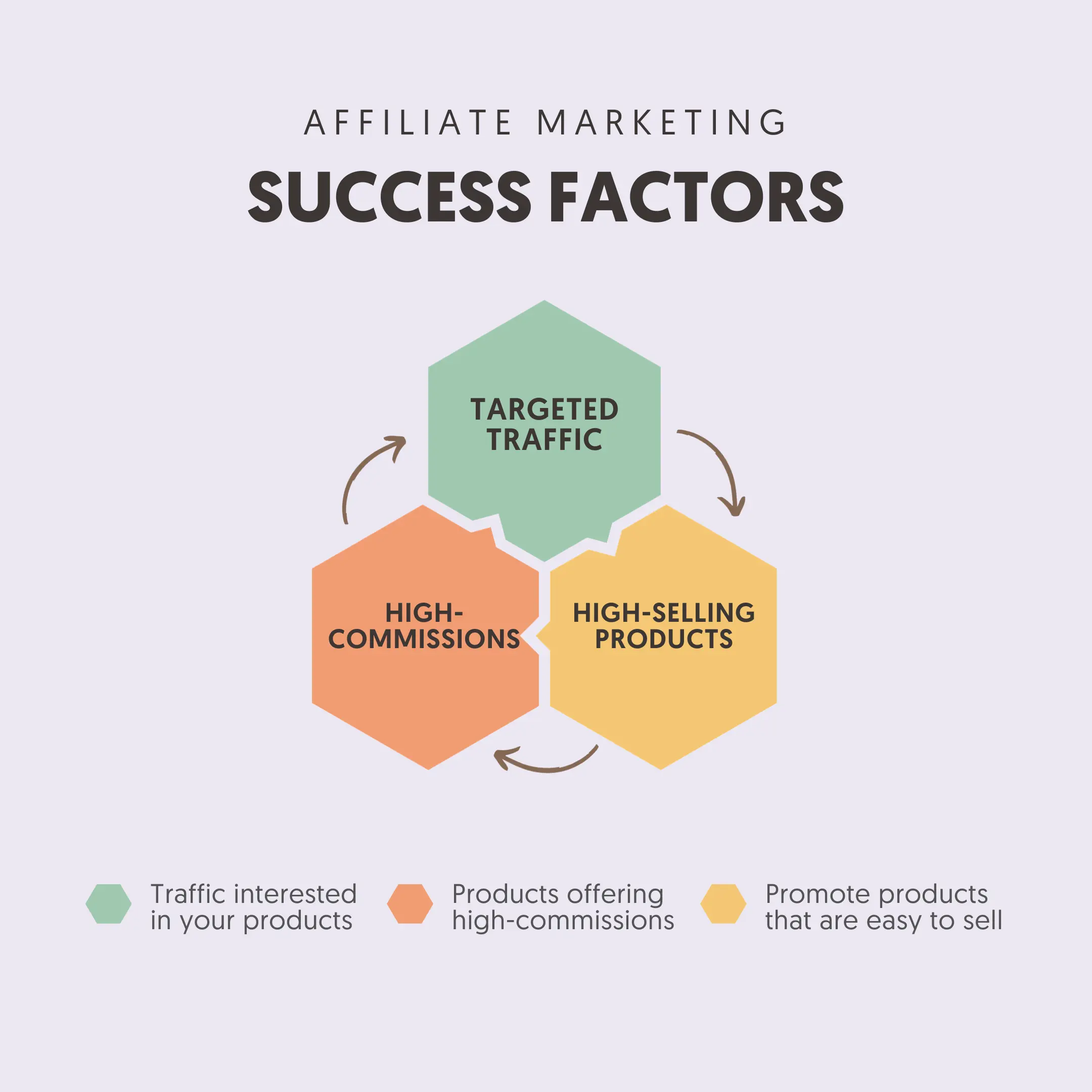In the competitive landscape of digital marketing, affiliate marketing stands out as a popular and lucrative strategy. However, the backbone of successful affiliate marketing hinges on effective indexing. Proper indexing ensures that search engines can discover and rank affiliate content, enhancing visibility and driving organic traffic to your site. Without it, even the most compelling affiliate offers risk being lost in the vast expanse of the internet. Understanding how indexing works and its impact on search engine optimization (SEO) is vital for affiliates aiming to maximize their reach, engage their target audience, and ultimately boost conversion rates.
The Significance of Indexing in Affiliate Marketing
Indexing plays a pivotal role in affiliate marketing as it directly affects the visibility and reach of your content. Without proper indexing by search engines, even the most valuable affiliate content may never reach its intended audience, diminishing its potential profitability. Below, you’ll find key factors that underline the importance of indexing in this context.
What is Indexing in Search Engines?
Indexing is the process through which search engines like Google, Bing, or Yahoo catalog and store web pages so they can retrieve them quickly when a user searches for relevant content. Once your affiliate content is indexed, it becomes searchable and appears in the search engine results pages (SERPs). This is crucial because it enhances your chances of appearing in front of potential leads who are interested in the products or services you’re promoting. Comprehensive indexing ensures that search engines are aware of all your web pages, news updates, and recent content contributions.
How Indexing Affects Affiliate Marketing Visibility
For affiliate marketers, visibility means everything. The higher your content ranks in search results, the more traffic you can drive to your affiliate links. When a page is indexed, it stands a greater chance of appearing when users enter search queries related to the products or services you are promoting. Good visibility leads to increased click-through rates, boosting your potential earnings. Ensuring your affiliate pages are indexed as often and as well as possible maximizes your exposure and engagement opportunities.
Strategies to Ensure Your Content Gets Indexed
To ensure effective indexing, start by submitting your sitemap to search engines, as this helps them understand your site’s structure. Utilize relevant keywords naturally and maintain a strong internal linking structure to assist search engines in navigating your site. Creating high-quality, unique content can stimulate organic linking and social shares, enhancing your site’s authority and likelihood of being indexed quickly. Regular updates to your site can also encourage more frequent visits by search bots.
The Role of Technical SEO in Indexing
Technical SEO is fundamental in making sure your site is efficiently indexed. Ensure your site has a user-friendly URL structure and is free from errors like 404s, which can hinder indexing. Fast page load times and a mobile-responsive design are critical factors; search engines prioritize speed and adaptability in their ranking algorithms. Additionally, using schema markup can help search engines understand the content and context of your pages better, potentially improving their indexability.
Common Indexing Issues and How to Fix Them
Common indexing issues include duplicate content, inadvertently using noindex tags, or having pages that are not linked from anywhere else on your site. To address these, perform regular site audits to detect and correct such problems. Tools like Google Search Console can be invaluable, revealing which pages are not indexed and why. Correct these issues by removing duplicate content, adjusting your robots.txt file, and ensuring every page has a clear path through your site’s navigation or internal links.
| Key Factor | Description | Benefit |
|---|---|---|
| Indexing | The process of adding webpages into search engine results. | Increases visibility and accessibility to potential customers. |
| SEO | Search engine optimization techniques to improve site ranking. | Enhances the likelihood of being indexed and ranked higher. |
| Technical SEO | Focuses on the website’s backend structure. | Improves site usability and indexation. |
| Sitemap Submission | Submitting a sitemap to search engines. | Ensures comprehensive indexing of all pages. |
| Duplicate Content | Identical content across several pages. | Eliminating it can improve indexing efficiency. |
What factors into the success in implementing an affiliate program?

Choosing the Right Affiliates
Selecting the right affiliates is crucial for the success of an affiliate program. Affiliates who align with your brand can promote your products more effectively.
- Relevance: Find affiliates whose audiences align with your target market. Their followers are more likely to be interested in your products, ensuring more genuine connections.
- Reputation: Consider the credibility of potential affiliates. Affiliates with a strong, positive reputation can enhance the perception of your brand.
- Engagement: Analyze the engagement rates of potential affiliates. Affiliates who actively engage with their audience can promote your products more enthusiastically and effectively.
Implementing a Competitive Commission Structure
An attractive and competitive commission structure can significantly motivate affiliates to drive sales for your business.
- Incentives: Provide clear incentives for meeting sales milestones. This encourages affiliates to be proactive in their promotional efforts.
- Tiered Commissions: Implement a tiered commission structure that increases the percentage with higher sales volumes, incentivizing affiliates to reach higher targets.
- Clarity: Ensure the commission structure is transparent and easy to understand, making it simple for affiliates to know what they will earn.
Providing Support and Resources
Offering adequate support and promotional resources can empower affiliates to effectively market your products and maximize their sales efforts.
- Educational Materials: Offer training and educational resources, such as tutorials and webinars, to help affiliates understand your products and sales tactics.
- Promotional Assets: Provide a variety of promotional materials, including banners, graphics, and content templates, to assist affiliates in marketing your products.
- Responsive Support: Maintain a robust and responsive support system to assist affiliates with any questions or issues they may encounter.
Why is website indexing important?

Website indexing is a crucial process in digital marketing and web development. It involves search engines actively organizing and storing web pages from the internet in their databases. Here’s why it is important:
Improving Search Engine Visibility
When a website is indexed, it becomes visible and searchable in search engine results pages (SERPs), which is essential for attracting organic traffic. An unindexed site, no matter how well-designed, will not appear in search results.
– Improving Visibility: Indexed websites are more likely to appear in search results, enhancing visibility.
– Traffic Generation: Better indexing boosts the chances of receiving web traffic as users can discover your site.
– SEO Performance: Enhanced visibility can improve search engine optimization (SEO) performance by making content more reachable.
Enabling Content Discovery
Website indexing ensures that all parts of a website, including older or less-visited pages, are discoverable by search engines. This is crucial for comprehensive content accessibility.
– Deep Crawling: Search engines deeply crawl the site, allowing for both newer and older content to be accessible.
– Structured Data Utilization: Proper indexing helps in utilizing structured data for better classification and presentation.
– Content Updates: Ensures that newly added or updated content is promptly indexed and discoverable.
Facilitating Efficient Page Ranking
Indexing allows search engines to rank web pages according to their relevance and quality, crucial for determining page authority and positioning in search results.
– Relevancy Assessment: Indexed pages are assessed for content relevancy and quality.
– Algorithmic Ranking: Search algorithms rely on indexed data to rank pages appropriately.
– Competitive Positioning: Proper indexing can elevate a website’s position, helping it compete in its market space.
What is the most important thing in affiliate marketing?

The most important thing in affiliate marketing is to understand and target the right audience. Without a clear understanding of who your audience is, you won’t be able to successfully match the right products or services to their needs, leading to lower conversions and reduced income from your affiliate marketing efforts. Below are some related subtopics discussed in detail:
Understanding Your Target Audience
To effectively engage in affiliate marketing, one must first deeply understand their target audience. This includes identifying who they are, what they need, and how they behave online. Here’s how to do it:
- Identify Demographics: Gather data on age, gender, location, and income levels to tailor your marketing strategy more precisely.
- Study Behavior: Analyze your audience’s online behavior, such as browsing patterns, favorite shopping sites, and preferred social media platforms.
- Anticipate Needs: Use the information gathered to predict what products or services your audience might need, thus increasing conversion rates.
Selecting the Right Products or Services
Once the audience is well-understood, selecting the right products to promote is crucial for affiliate marketing success. This involves:
- Relevance: Choose products closely related to the interests and needs of your audience to improve the likelihood of engagement.
- Credibility: Ensure the products or services you’re promoting come from reputable sources to build trust with your audience.
- Competitive Analysis: Examine similar products in the market to understand what works best and where you can offer a unique selling proposition.
Creating Engaging Content
Content is the bridge between affiliate marketers and their audience. Engaging content attracts, retains attention, and motivates the audience to take action. Key strategies include:
- Informative Content: Provide in-depth reviews and tutorials that answer questions and solve problems, adding value to the audience.
- Personalization: Tailor content to resonate individually with segments of your audience based on their demographics and preferences.
- Call to Action: Use compelling and clear calls to action to guide your audience towards making a purchase through your affiliate links.
Which metric is crucial for measuring the success of an affiliate marketing campaign?

Conversion Rate: A Key Indicator
The conversion rate is a crucial metric for measuring the success of an affiliate marketing campaign. It refers to the percentage of users who take a desired action after clicking on an affiliate link. This action could be making a purchase, signing up for a newsletter, or any other predefined goals. Understanding conversion rates is essential because it helps marketers evaluate how effectively an affiliate is prompting user actions.
- A high conversion rate indicates that the affiliates are targeting the right audience and promoting products effectively.
- Tracking conversion rates allows marketers to identify which affiliates drive the most valuable traffic and deserve more focused investment.
- Optimizing affiliate marketing strategies for better conversion rates can lead to higher revenues and improved partnership efficiency.
Return on Investment (ROI): Understanding Profitability
Return on Investment (ROI) is a critical measure to understand the profitability of an affiliate marketing campaign. This metric compares the profit gained from the campaign to the amount invested in it. It is essential to evaluate whether the affiliate program is financially viable and contributing to business growth.
- Calculating ROI helps determine the financial success of a campaign by showing how much return is generated per dollar spent.
- An affiliate campaign with a high ROI signifies effective resource allocation and strategic placement of efforts.
- Its analysis can guide future budget allocations and adjustments in marketing strategies to enhance overall value creation.
Click-Through Rate (CTR): Gauging Engagement
The Click-Through Rate (CTR) is an essential metric for assessing how engaging your affiliate links and advertisements are to the audience. It is calculated by dividing the number of clicks by the number of impressions, reflecting how often people clicked on an ad after seeing it.
- A high CTR indicates that the ad content is resonating well with the audience and encourages interaction, a sign of effective targeting.
- This metric helps identify which types of content and creatives capture the audience’s attention effectively.
- By analyzing CTR, marketers can adjust content strategies, ensuring they maximize engagement and interest with their affiliate links.
Frequently Asked Questions
Why is indexing important for affiliate marketing success?
Indexing is critical in affiliate marketing as it ensures that your content is searchable and accessible for users seeking information via search engines. When your pages are properly indexed, they can appear in relevant search results, driving organic traffic to your website. This exposure increases the chances of conversions as more users interact with your content and affiliate links. Without proper indexing, affiliate marketers risk their content being invisible, missing out on potential revenue and opportunities for audience engagement.
How does proper indexing affect search engine optimization (SEO) for affiliate websites?
Proper indexing plays a pivotal role in boosting the SEO of affiliate websites by ensuring that search engines can appropriately crawl and analyze the content. Indexed pages are more likely to rank higher in search results, improving the website’s visibility. This enhanced visibility attracts a broader audience, leading to increased clicks and affiliate sales. Furthermore, correct indexing helps in identifying and solving potential SEO issues, such as duplicate content or broken links, therefore enhancing the overall user experience and search engine ranking.
What tools can affiliate marketers use to ensure effective indexing of their content?
Affiliate marketers can use several tools to ensure their content is effectively indexed. Google Search Console is invaluable, providing insights into how Google views your site and highlighting any indexing issues. Other tools like Screaming Frog and SEMrush offer features to crawl your website, identifying indexing errors and suggesting improvements. These tools help maintain the health of your content by ensuring it is crawl-friendly and correctly structured, which are both crucial for successful indexing and higher search ranking.
What are the consequences of poor indexing for affiliate marketers?
Poor indexing can have dire consequences for affiliate marketers by significantly reducing their website’s visibility and reach. If search engines can’t access or index a page properly, it becomes essentially non-existent in search queries, leading to a drop in organic traffic. This lack of visibility translates to fewer clicks and reduced affiliate commissions. Moreover, poor indexing can damage brand reputation as users may associate your content or brand with idle or outdated information. Therefore, ensuring proper indexing is necessary to maintain the website’s competitive edge in the dynamic digital market.

